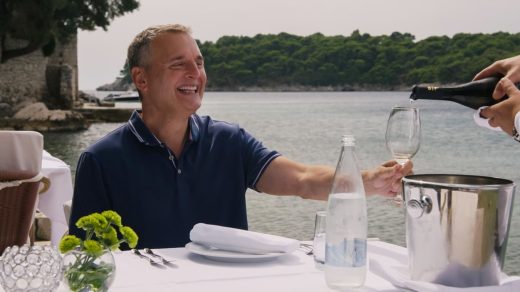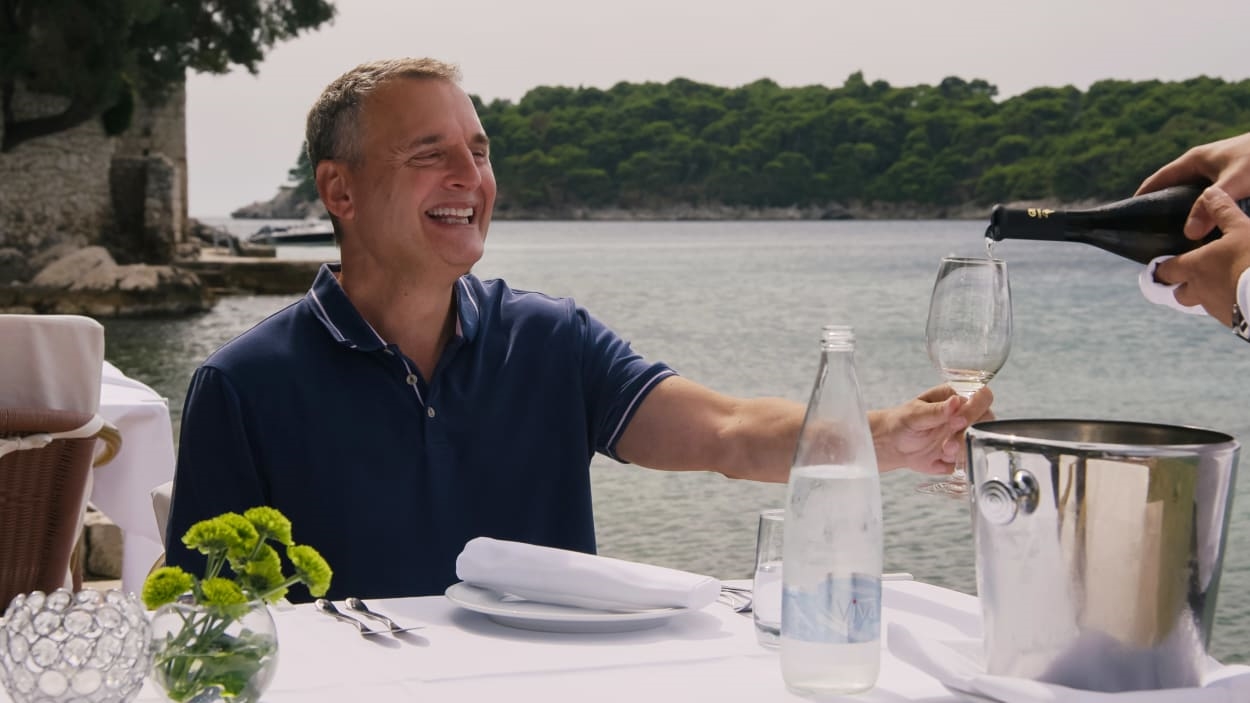The creator of Netflix’s ‘Somebody Feed Phil’ on the joy of taking chances
By Jenna Abdou
Phil Rosenthal had said yes to every adventure on his Netflix series, Somebody Feed Phil, until he visited Ireland and they wanted him to dive into the freezing-cold water. So, I was surprised when he shared it as a memory he anticipates reflecting on in his nineties.
“I didn’t want to do it,” he tells me. “At the beginning, I said, These people are insane. I’ll wait on shore and have a hot chocolate. Then we left, and the spirit of these people and this community got under my skin. I thought, What a magical way to live—all jumping in the water and having breakfast together every day. So, I called my brother [the show’s executive producer] and said, ‘I have good news and bad news. The good news is: I think I know the ending of the show. The bad news is: We have to go back to that town. I have to jump in that water.’
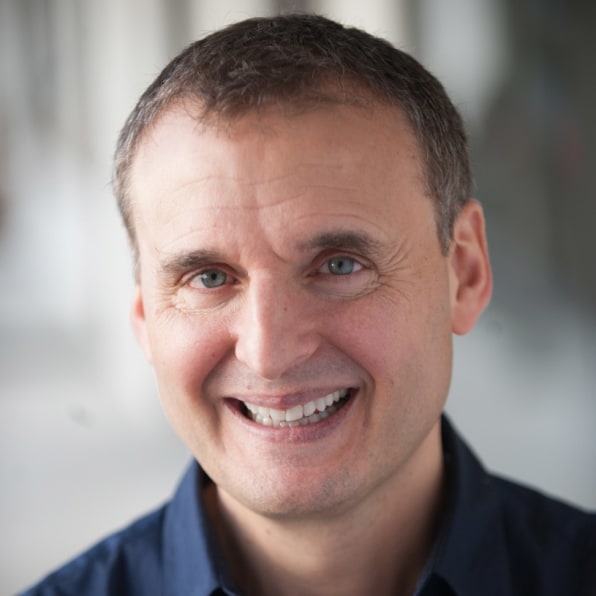
“I didn’t enjoy the painful shock of cold, but I was proud I did it. I liked the feeling so much that, to this day, I turn the water on cold for 30 seconds in the shower. It’s the best wake-up possible, and it transports me back to that memory, to the joy of taking chances and having them pay off.”
If you’ve seen Somebody Feed Phil, you know Rosenthal is courageous enough to take the biggest chance of all—on connection. Here, he shares how he designs the show’s culture to bring out the best in everyone—from chefs and grandmothers to his own team—and offers simple practices for us to try ourselves.
Fast Company: Your gift is connecting around the passions that light people up. How do you approach your conversations on the show?
Phil Rosenthal: People appreciate when you’re curious about them, rather than focusing on your own needs and what you can get from them. I’m genuinely happy to meet you as a new person. I’m interested in what’s going on with you. How’d you get here? How come this is so delicious? How did you make it? I know it took a lot of hard work. Tell me. I’ll learn something, right? When you start with a feeling of genuine appreciation, I think they appreciate that. I know I do. If someone’s happy to meet you, aren’t you then happy to meet them too? It’s rare that somebody’s happy to meet you and you say, Oh, please no!
FC: Human goodness—people thriving and supporting each other—is rarely acknowledged as a vehicle for change. Thankfully, your show proves that wrong. What role does joy play in inspiring change?
PR: Hate doesn’t seem to work very well, right? It’s that simple. Nobody feels good from hate. Even if you win your hate game, are you happy? Really? You know what makes you happy? Finding joy and happiness in life. James Taylor has a song [that begins] “The secret of life is enjoying the passage of time.” So, how do I enjoy the passage of time? Family, friends, food, travel, and laughs. That’s the recipe for me.
FC: I’m curious how you sold that for the show because few believe in joy as the great connector.
PR: Yes, because the world can be a cynical place. Our job is to fight the cynicism.
FC: It often feels like the places you visit place a higher value on community, culture, and well-being than external markers of success. How has that impacted you and your beliefs around success?
PR: I was 23 the first time I went to Europe. You know the first time you have a croissant in Paris? The top of my head came off. I wanted to buy something at 2 p.m. and the store was closed. I tried another store. The whole place was closed. I was like: What’s going on? Then, somebody explained to me that they take a break in the middle of the day. I asked: Why would they do that? Don’t they want to make a living? They said: Yes, they’ll stay open a little later. They don’t want the day to go by without enjoying it. It changed my life. I have lunch every day with someone I love or want to get to know. It can be an hour or two, but I want to enjoy the day.
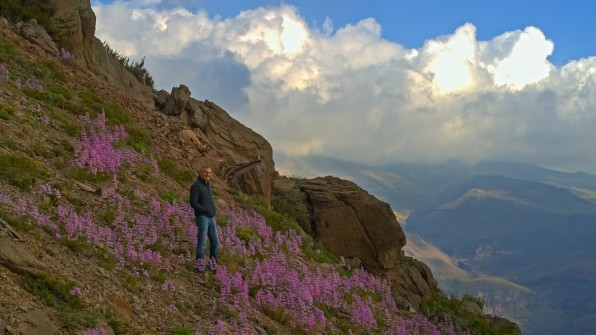
People say: How’d you get the food and travel gig? It took 10 years and that was after I had a successful sitcom. Nobody wanted to hear about a food and travel show from a sitcom guy. But, I pursued this dream job for 10 years. Was it worth it? Yes. Is it a pain to deal with all the business stuff? Yes. Is it still worth it? Yes.
FC: Every time we see your team on the show, you’re feeding them and everyone’s laughing. Let’s say a team wants to have the Somebody Feed Phil experience in their city. How would you design that?
PR: Every place we’ve been is on my website, philrosenthalworld.com. If we’ve been to your city, start with one of the places that looks conducive to fostering the spirit you’re looking for. Then, go! It’s that simple. People have retreats because when you take people out of the office, suddenly you start to see the human being instead of the worker. That alone is worthwhile. But what if you went on a trip to a magical place that you saw on TV, dream of trying, and your team knows is going to be good? I’ve discovered that feeding people well is a good way to show them that you care about them. It nurtures the full person.
FC: You share that stepping out of our comfort zones together helps us build community and collaborate. Still, there’s often resistance. If I were hesitant to embark on a new experience, how would you open me up to it?
PR: I would give you something delicious to eat. If you can open a mouth, you can open a mind. The thing about food is that you are literally taking in the culture. Now, you’ve taken a bite of this food that you’ve never tried before because you were afraid to. “Afraid” is the key word here. Afraid to taste this dish. Afraid to meet this person. Afraid to go to that country. Afraid to have so-and-so as a neighbor. “Afraid” breeds all the bad things. I’m here to say, and I’ve shown by example, that if you can just take that baby step out of your comfort zone—jump into the cold water with the crazy Irish people—it’s worth doing.
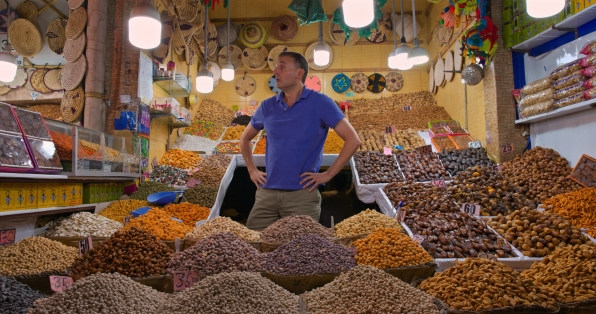
FC: It’s hard to imagine this for you, but was there a challenge or area of growth you had to overcome connecting with people?
PR: I’m naturally a tiny bit shy, believe it or not. I wasn’t the guy in real life who would strike up a conversation with a stranger the way you see me do it on the show. The fact that I was making a show about connecting forced me out of my comfort zone. Now, I’m better at saying hi and striking up a conversation. I just came from the picket line [at the writer’s strike]. There’s a bunch of people I was picketing with who I didn’t know. I said hi to them all. Now, I have something that a lot of people don’t have: The fact that someone knows who you are bridges conversation. Because, deep down, we’re always worried: Do they like me? If I talk to them, will I be rejected? So, let me recommend this to everyone: Get a TV show! But, the truth is, you don’t need a show. What did mine give me? A tiny bit more confidence that I wasn’t going to get my feelings hurt? People don’t always see the cameras when we approach them, and I’m just a guy saying hello. It’s one of the great joys of my life to make a connection in a place I never thought I could or would.
FC: Given our conversation, if you could leave us with one question to reflect on, what would it be and how would you answer it?
PR: Have you seen everything you want to see in life yet? You’ll never be as young as you are right now. So, go! Soon, my show is going to have to be called “Somebody Push Phil”! I always say, If somebody gave you a big house as a gift, would you stay in one room? We’ve all been given this gift. I want to see the whole house.
(35)

